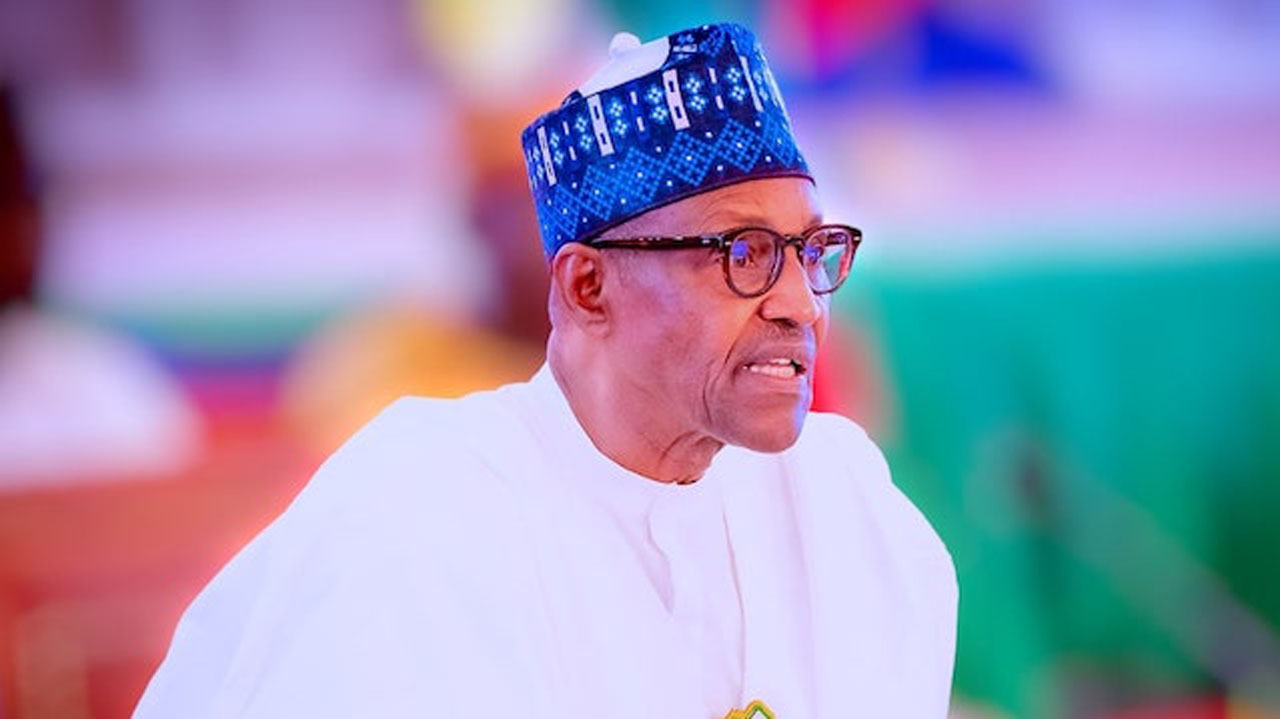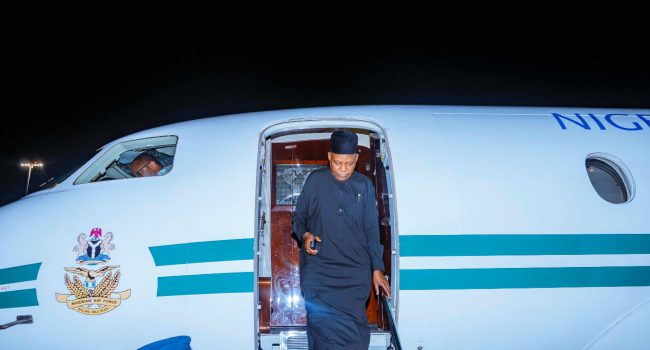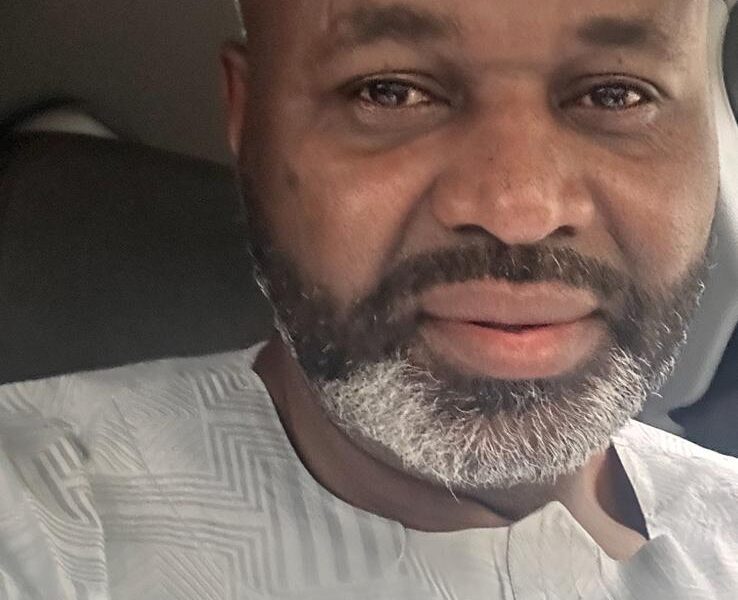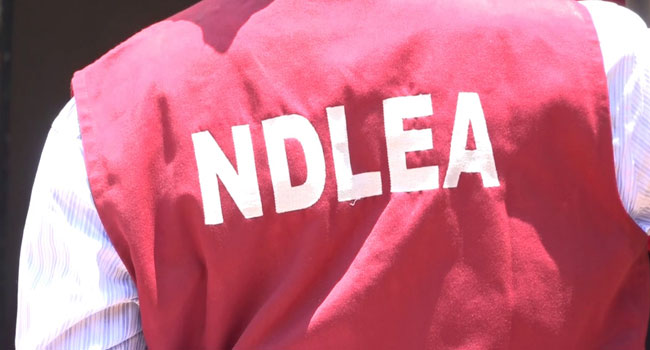Ijaw leader, Chief Edwin Clark on Sunday took on the outgoing President, Muhammadu Buhari for his nepotistic disposition and for the neglect the Niger Delta region.
In what he referred to as farewell address to president Buhari, the elderstatesman accused him of leaving the nation, especially the Niger Delta region, worse than he met it.
Speaking in Abujahe said, Buhari has failed, treating Niger Delta with ignominy adding that those of them who felt he didn’t do well should not keep quiet but must speak out.
Explaining further, he said the outgoing President has bequeathed a bouquet of unfulfilled promises, divided nation and myriads of critical federal infrastructural projects in shameful states, especially roads, and particularly in the Niger Delta region.
All of the negative things he said were in addition to the debilitating state of insecurity in most parts of the country, being perpetrated by the menacing killer herders, Boko Haram and ISWAP terrorists, heinous bandits, kidnappers and sundry criminals.

According to him, the situation has become so bad that a vast majority of citizens, particularly the youths, are gripped by feelings of annihilation, fear and desperation due to lack of adequate protection by the government resulting to the now common “japa syndrome”, where leaving the country has become the aspiration of most active Nigerians.
He also pointed out how Buhari’s government humiliated him, treating me with ignominy.
“Sometimes ago, at midnight, three bus loads of security officers came to accused me of stockpiling amunutions, and they search my house and it took them two hours to search. At the end, they found nothing.
According to him, they apologized through some AIGs and Ijaw youths demonstrated in Port Harcourt.
He said, former presidents before Buhari congratulated him on his birthday in the past, but when Buhari came, he failed to congratulate him
“I see no reason why Buhari would not congratulate me and why he failed to apologize to me when my house was raided.
“I am 96 years old now, and I have been actively involved, by the Grace of God, in the affairs of Nigeria and the Niger Delta region, for over 70years, I have seen it all.
“Outgoing President Muhammadu Buhari declared in his inaugural speech on May 29, 2015 and I take liberty to cite.
“Having just a few minutes ago swore on a holy book, I intend to keep my hope and same as President to all Nigerians. I belong to everybody and I belong to nobody”
However, the elderstatesman said, in the past 8years, President Muhammadu Buhari has demonstrated in most cases that he did not belong to the whole country but to a group; his tribe and religion, which is contrary to what he said in his inaugural speech that he belong to everybody.
For instance, he appointed fourteen out of seventeen security Chiefs from one section of the country. So, the declaration that “he belongs to everybody and nobody”, was a sham. I make bold to say that the reverse has been the case, “he belongs to some people”, but not the entire Nigeria.
“Even in matters like extending the good wishes of the government to notable personalities in the country on their birthdays or other landmark attainments, the Muhammadu Buhari administration was selective and biased in who it chooses to recognise or consider worthy of goodwill messages.
“Buhari’s team has publicly recognised the anniversaries of people who in all humility are either much younger than me, or have contributed much less than I have, to this country.
“On my 91st birthday in 2018, I protested this anomaly in an open letter to President Muhammadu Buhari. I became 96 on Thursday last week; the Buhari administration did not deem it fit to send a goodwill message to me.
“Given my services to Nigerian, three of my colleagues in General Yakubu Gowon’s government’s cabinet became Heads of State and President of the Federal Republic of Nigeria, mainly, General Murtala Mohammed, General Olusegun Obasanjo, and Alhaji Shehu Shagari, over the past 70 years.
“I regard myself as a senior citizen of this country. I am convinced that if President Muhammadu Buhari was not illiberal and “belongs to everybody”, he would have been consulting me for advice.”
He said the South-South Geopolitical Zone has been treated very unfairly by the outgoing administration, despite the region’s contributions to the national economy.
“For reasons unknown to me, there has also been series of unwarranted and unjust actions against people of South-South Extraction, even with regards to top appointments in the federal public service, in last seven years.
“That brings to mind, the way and manner the former Chief Justice of Nigeria, Justice Walter Onnoghen, GCON, was harassed and humiliated out of office, to the extent that the office of Chief Justice of Nigeria was denigrated.
“The situation in the Petroleum Industry is even more appalling, where the discrimination and seeming snobbery have been elevated to unreasonable heights.
“It appears all strategic positions in the NNPC and its subsidiaries are reserved for people from the Northern zones of the country, while the peripheral positions are for people from the South-South.
“The situation whereby the Niger Delta Region continues to suffer marginalization and isolation in critical sectors of the Country, especially in the Oil and Gas Sector, should be unacceptable to all fair-minded humanity. “While our resources are being managed mainly by people from other parts of the country, the people of the oil-producing communities of the Niger Delta, who bear the brunt of the degradation, arising from the oil and gas exploratory activities, receive mere soupçons and are rendered spectators of the oil business.
“Oil and gas companies paid a total of N346bn as penalty for flaring gas in five years, according to data from the Central Bank of Nigeria. The amount was marked as part of the federally collected revenue. “Gas flaring is the surface combustion or burning of natural gas, often associated with crude oil production when pumped up from the ground. It is burnt off or a, as part of the oil production process.
“According to the World Bank, the practice has persisted since the beginning of oil production over 160 years ago and takes place due to various issues, from the market and economic constraints to a lack of appropriate regulation and political will.
“However, the Federal Government had in recent times led campaigns for gas monetisation against flaring. Findings showed that an undisclosed number of companies paid the sum between 2018 and 2022 as companies continue to flare gas.
“It was observed that the fines maintained a steady increase of over 1,491 per cent from N4.5bn paid in 2018 to N71.6bn collected in 2022.
“A breakdown showed that the companies paid N4.5bn in 2018, N86.2bn in 2019, N87.1bn in 2020, N96.5bn in 2021, and N71.6bn in 2022.
However, oil and gas analysts linked the rise in gas flaring to low fine by the Federal Government, lack of infrastructure investment, among others.
“According to a 2022 report by the National Oil Spill Detection and Response Agency, 12 Million tonnes of CO2 emitted into the atmosphere from gas flaring has contributed to global warming.
“The flaring of gas have been on for a very long-time and I remember addressing this issue in a lecture I gave at the Nigerian Institute of International Affairs in Lagos over 30 Years ago, where I stressed the damage being done by gas flaring to the host communities in the Niger Delta. “
“The damage done to buildings where the roofs have all become darken by the flaring sooth and the disease caused by the gas flaring; every Nigeria Government has promised to stop the gas flaring and to pay part of the money being paid by the oil and gas companies to the victims has yielded no return. “During a protest to Mr. President by first class Chiefs about two years ago and host community leaders of the Niger Delta; the President promised that the matter will be seriously looked into and money paid, but nothing has been done by Mr. President, by way of compensating the host communities.




